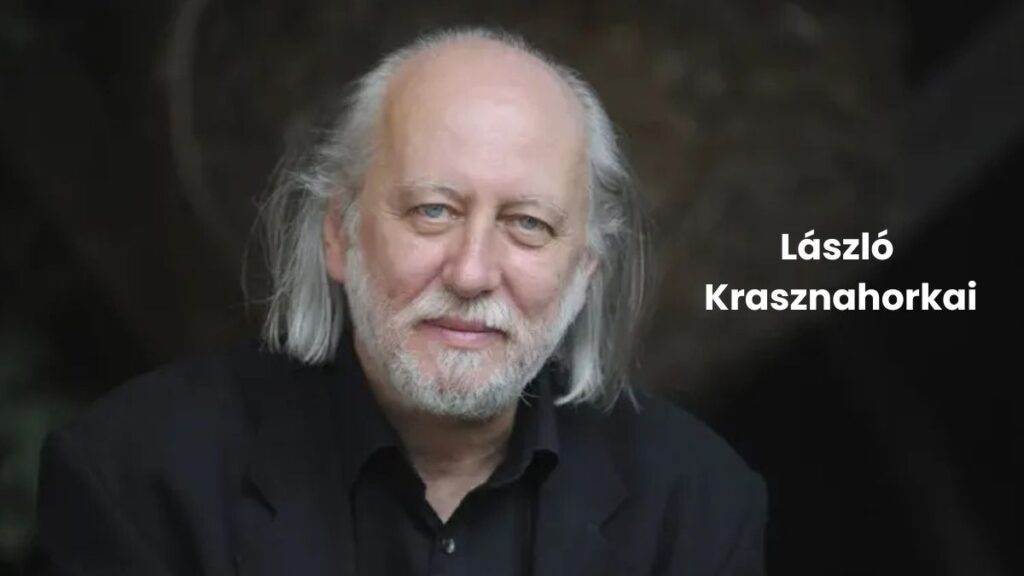Author László Krasznahorkai is honored by the Swedish Academy for his visionary writing that shows the power of art even in the darkest times, making him the second Hungarian writer to win the prize.
László Krasznahorkai, a Hungarian novelist, has received the 2025 Nobel Prize in Literature. The Swedish Academy praised his work for being “compelling and visionary” and said that, even in the midst of apocalyptic terror, it reaffirms the power of art. Krasznahorkai is known for his deeply thoughtful and intense novels that explore life, despair, and the search for beauty.
The announcement was made in Stockholm on October 9, 2025, and the official Nobel ceremony will take place on December 10, 2025. He is the second Hungarian author to receive the Nobel Prize in Literature after Imre Kertész, who was honored in 2002.
The Nobel Committee’s Statement
The Nobel Committee called Krasznahorkai “a great epic writer in the Central European tradition.” His novels depict a world full of uncertainty and decay, yet they also show how people hold on to hope and express their creativity. The committee emphasized that his work demonstrates the value of thoughtful, carefully crafted literature in a world where attention spans are often short and stories are simplified.
About László Krasznahorkai
Krasznahorkai was born in 1954 in Gyula, a small town in Hungary near the Romanian border. He studied law at József Attila University and later focused on literature at Eötvös Loránd University in Budapest. Growing up during the communist era influenced his thinking and his writing, which often deals with themes of loneliness, control, and the search for meaning.
He has lived and traveled across Europe, spending time in cities like Berlin and Frankfurt. His writing is known for long, flowing sentences that can stretch for entire pages. Over time, he has become one of Europe’s most respected literary voices, admired for combining philosophy, emotion, and art in his storytelling.
Major Works
Krasznahorkai first attracted attention with his 1985 novel “Sátántangó,” which tells the story of a village falling into decay. This book was later made into a seven-hour film by Béla Tarr, the Hungarian director, which became widely acclaimed. He worked with Béla Tarr on additional film adaptations of his novels, such as “Werckmeister Harmonies” and “The Turin Horse.”
Other important works include “The Melancholy of Resistance” (1989), “War and War” (1999), “Seiobo There Below” (2008), and “Baron Wenckheim’s Homecoming.” These books have been translated into many languages and received international awards. Seiobo There Below won the Best Translated Book Award, and in 2015, Krasznahorkai received the Man Booker International Prize.
Writing Style and Themes
Krasznahorkai’s novels are known for their poetic language, long sentences, and philosophical depth. His stories often take place in gloomy worlds where people struggle with fear and loneliness, yet they also show how art and imagination can bring hope. Critics compare him to Franz Kafka, Thomas Bernhard, and Gogol for his mix of the absurd and the profound.
The Nobel Committee noted that his work “reaffirms the power of art,” showing that even in hopeless situations, creativity and imagination can inspire and uplift people.
Reaction to the Nobel Prize
After learning about the award, Krasznahorkai said he felt both calm and nervous. At the time, he was in Frankfurt am Main, visiting a friend. He described the moment as “more than a catastrophe,” referencing Samuel Beckett’s famous reaction to winning the Nobel.
He thanked readers and friends, expressed his love for the Hungarian language, and said he hopes people regain “the ability to use their imagination.” Later, he celebrated quietly with close friends over champagne and port wine.
Significance of the Win
The Nobel Prize brings international attention to Hungarian literature, known for its emotional depth and intellectual rigor. Krasznahorkai’s recognition highlights the importance of serious, reflective literature at a time when fast-paced entertainment dominates.
His work shows that literature can illuminate the human experience, offering strength, insight, and hope even in difficult times. László Krasznahorkai’s Nobel win celebrates both his remarkable career and the enduring power of storytelling.
